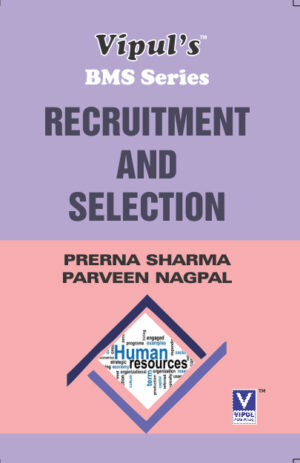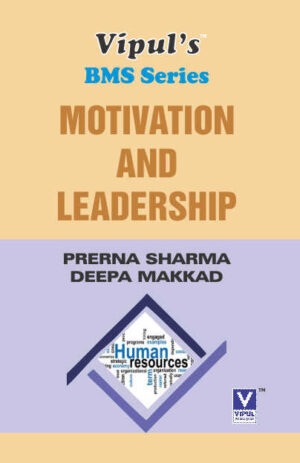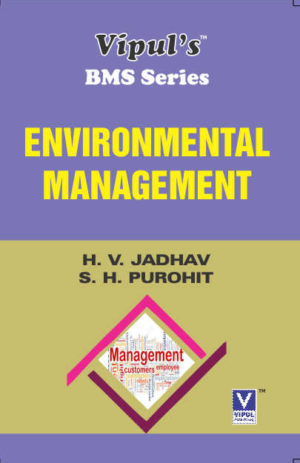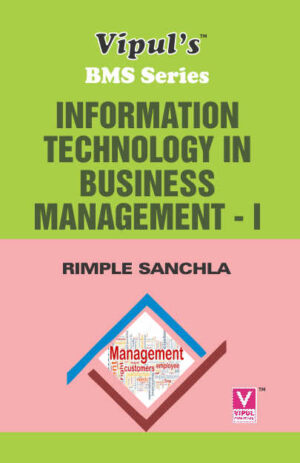HRM in Global Perspective
₹175.00
TYBMS — SEMESTER – VI
Author: Prerna Sharma
Parveen Nagpal
SIXTH REVISED EDITION
Description
SYLLABUS
(1) International HRM – An Overview:
- International HRM: Meaning and Features, Objectives, Evolution of IHRM, Reasons for Emergency of IHRM, Significance of IHRM in International Business, Scope/ Functions.
- Difference between International HRM and Domestic HRM.
- Approaches to IHRM: Ethnocentric, Polycentric, Geocentric and Regiocentric.
- Limitations to IHRM.
- Qualities of Global Managers.
- Organizational Dynamics and IHRM.
- Components of IHRM: Cross Cultural Management and Comparative HRM.
- Cross Cultural Management: Meaning, Features, Convergence of Cultures, Role of IHRM in Cross Culture Management, Problems of Cross Cultural Issues in Organizations, Importance of Cultural Sensitivity to International Managers.
- Comparative HRM: Meaning, Importance, Difference between IHRM and Comparative HRM.
- Managing Diversity in Workforce.
- Dealing with Cultural Shock.
(2) Global HRM Functions:
- International Recruitment and Selection: Meaning- Sources of International Labour Market, Global Staffing, Selection Criteria, Managing Global Diverse Workforce.
- International Compensation: Meaning, Objectives, Components of International Compensation Program, Approaches to International Compensation.
- HRM Perspectives in Training and Development: Meaning, Advantages, Cross Cultural Training, Issues in Cross Cultural Training.
- International Performance Management: Meaning, Factors Influencing Performance, Criterion used for Performance Appraisal of International Employees, Problems Faced in International Performance Management.
- Motivation and Reward System: Meaning, Benchmarking Global Practices.
- International Industrial Relations: Meaning, Key Issues in International Industrial Relations, Trade Unions and International IR.
(3) Managing Expatriation and Repatriation:
- Concepts of PCNs (Parent-Country Nationals), TCNs (Third-Country Nationals) and HCNs (Host-Country Nationals).
- Expatriation: Meaning, Reasons for Expatriation, Factors in Selection of Expatriates, Advantages of Using Expatriates, Limitations of using Expatriates, Role of Family, the Role of Non-expatriates, Reasons for Expatriate Failure, Women and Expatriation, Requirements/Characteristics of Effective Expatriate Managers.
- Repatriation: Meaning, Repatriation Process, Factors affecting Repatriation Process, Role of Repatriate, Challenges faced by Repatriates.
(4) International HRM Trends and Challenges:
- Emerging Trends in IHRM.
- Offshoring: Meaning, Importance, Offshoring and HRM in India.
- International Business Ethics and IHRM: Meaning of Business Ethics, Global Values, International Corporate Code of Conduct, Criminalization of Bribery, Operationalizing Corporate Ethics of HR in Overall Corporate Ethics Programme.
- Managing International Projects and Teams: Meaning, How Projects are Managed across the World and Challenges in Managing International Projects across the World.
- HR in MNCs – Industrial Relations in MNCs.
- Role of Technology on IHRM.
- IHRM and Virtual Organization: Meaning and Features of Virtual Organization, Difference between Virtual Organization and Traditional Organization, Managing HR in Virtual Organization.
- Growth in Strategic Alliances and Cross Border Mergers and Acquisitions- Impact on IHRM.
- Knowledge Management and IHRM.











